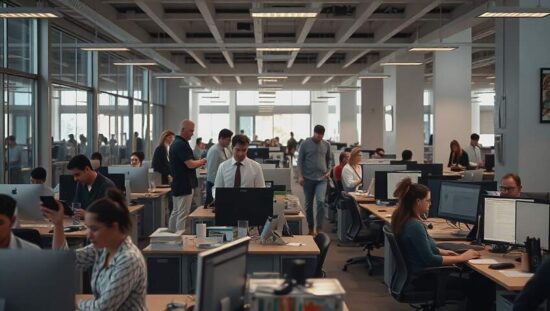The integration of artificial intelligence (AI) into the workplace has, so far, resulted in less disruption to the labor market than initially anticipated. Despite its widespread adoption across numerous companies, AI isn’t demonstrating a negative impact on employment levels, according to economist Anders Humlum. He stated there are no indications suggesting an imminent crisis resulting directly from this technological shift.
Humlum, a professor of economics at the University of Chicago, conducted an extensive analysis of Danish labor market data alongside his colleague Emilie Vestergaard. Denmark is a favored location for labor economics research due to the unusually detailed data readily available for study.
His research reveals that while chatbots are increasingly common in employees’ daily routines – with 43% of workers actively encouraged by their employers to utilize them – the economic impact remains minimal. Survey respondents reported an average time-saving of just 2.8% of their working hours attributable to AI. “AI isn’t contributing to employment surges or mass layoffs” Humlum noted.
These findings contrast with a recent study from Stanford University, which generated considerable global attention at the end of August. Researchers led by AI expert Erik Brynjolfsson raised concerns that AI is already eliminating entry-level positions, particularly for young graduates. They highlighted areas like software development as especially vulnerable to AI automation.
Humlum’s analysis of the Danish labor market reflects similar trends. While opportunities for many new graduates have diminished, this isn’t solely correlated with AI adoption. The decline is observed in companies aggressively implementing AI programs as well as those that have largely avoided them. This suggests an alternative cause is at play.
Enzo Weber, from the Institute for Employment Research in Germany, shares a comparable viewpoint. While the number of skilled worker positions in Germany has been slightly declining since 2019, Weber attributes this to the industrial crisis that began in that year.
Similarly, the rise in youth unemployment within Germany is linked to other factors. Young individuals often rely on emerging job opportunities, but these have been scarce after years of economic stagnation. “Young people aren’t suffering because of AI; they are suffering from the renewal crisis impacting the German economy” Weber concluded.





